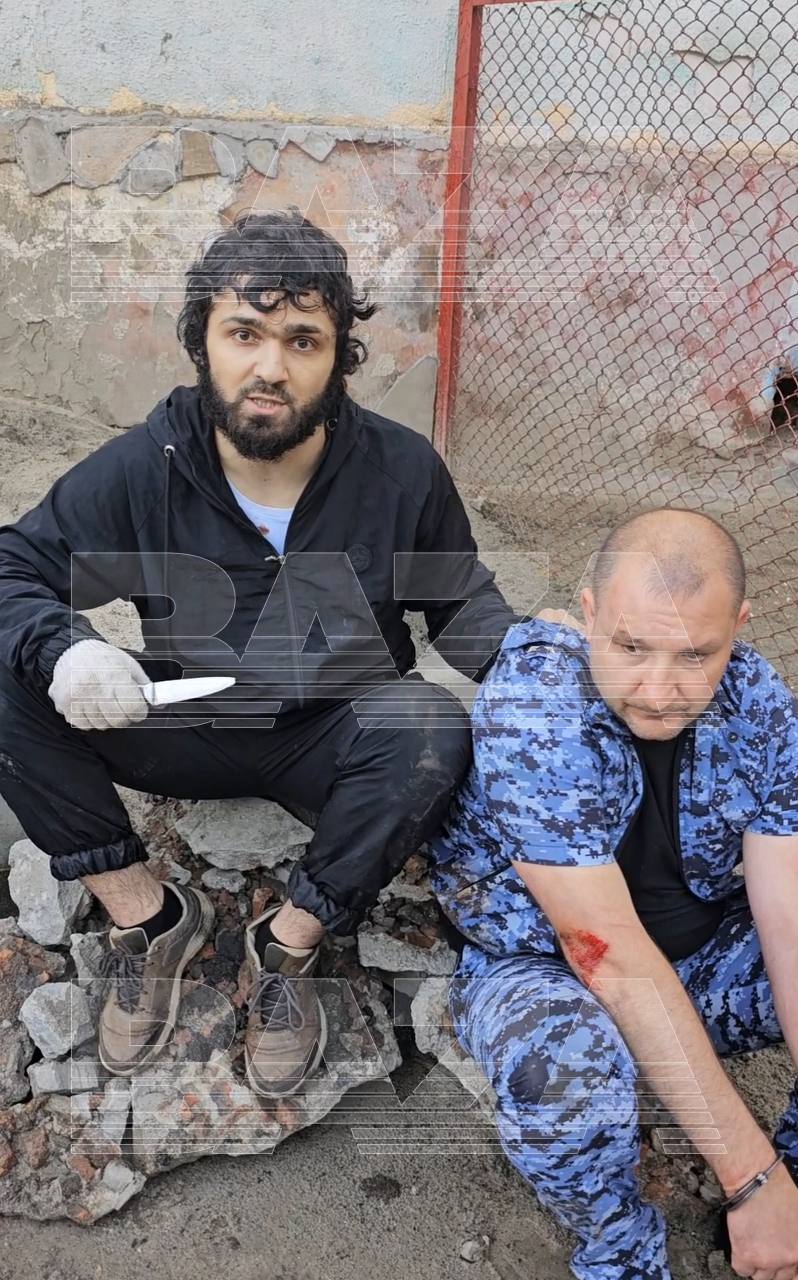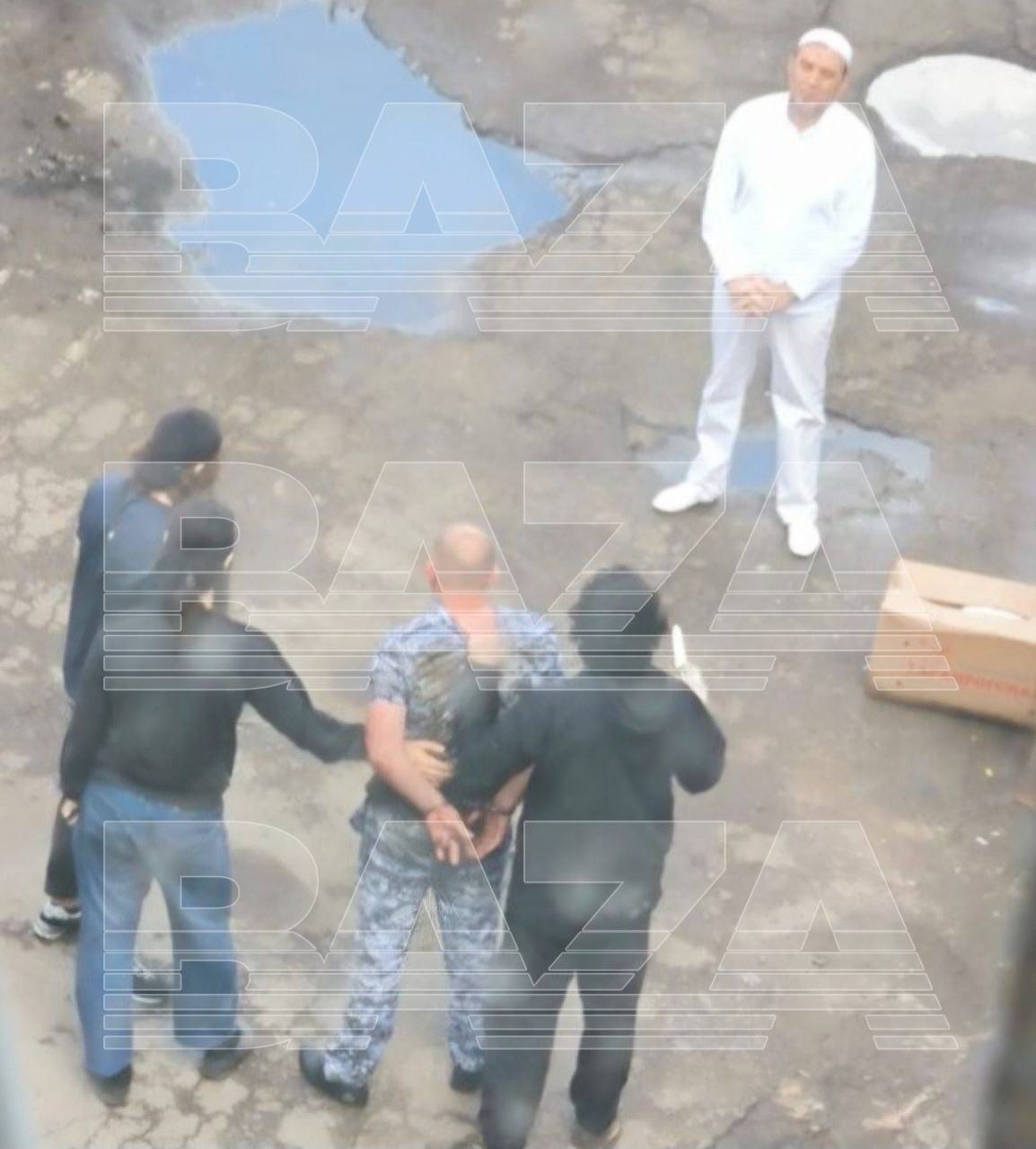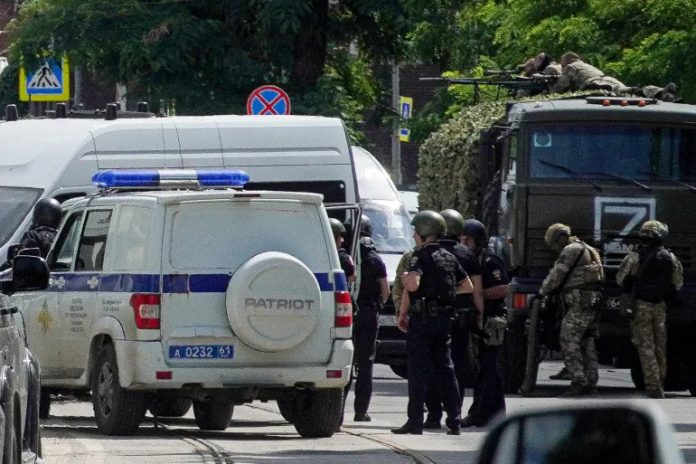On June 16, Russian special forces intervened at a pre-trial detention center in Rostov-on-Don, near the Sea of Azov, ending a hostage situation by neutralizing six inmates affiliated with the Islamic State (IS). The operation successfully freed two prison guards who were unharmed.
The hostage Situation
The crisis began when six detainees, previously held on terrorism-related charges, coordinated a takeover within the facility. According to the Russian Federal Penitentiary Service (FSIN), these individuals, armed with a knife, a rubber baton, and a fire axe, forced their way into a guard room after dismantling the bars of a cell window. They demanded safe passage out of the detention center in exchange for the release of the hostages.
Russian media sources reported that the detainees included individuals from Ingushetia who were apprehended in 2022 for allegedly planning a terrorist attack against the Supreme Court in the Karachay-Cherkessia Republic. Some assailants were seen in images on social media wearing headbands with insignia resembling the IS flag and wielding knives.
The tension escalated as the assailants broadcasted their demands through Russian Telegram channels, including requests for weapons and immediate release.
The standoff ended when Russian special forces stormed the facility, engaging in gunfire as captured in widely circulated online videos. These videos depicted the aftermath, where the assailants were seen deceased. The operation successfully secured the safety of the detained guards, who, according to the prison service, emerged without any injuries. Ambulances were dispatched to the scene and arrived shortly after the operation was completed.
Profiles of the Involved Parties
The attackers, known from prior convictions, included Tamerlan Gireev, Azamat Tsitskiev, and Shamil Akiev, who had been apprehended in 2022 in the Karachay-Cherkess Republic for plotting an attack on its Supreme Court. Found in their possession were components for an explosive device intended for the thwarted attack, leading to their convictions and lengthy sentences. The identities of two other assailants were established as M.Sh. Saipudinov and D.V. Kamneev, both charged under different articles of the Russian Criminal Code related to organized crime and extremist activities.
The hostages identified were the head of operational management of the FSIN for the Rostov region, Lieutenant Colonel Alexander Bogma, and junior inspector of the duty shift, Warrant Officer Viktor Konchakov. These FSIN employees were seized early in the morning after the assailants broke through the window bars of their cell and infiltrated the guard area, initiating the standoff.

Efforts to resolve the crisis involved local religious leader, the Imam of the Spiritual Administration of Muslims of Rostov region, who stepped forward to negotiate with the hostage-takers. Despite his attempts to de-escalate the situation and persuade the terrorists to lay down their weapons, the negotiations failed, leading to a forceful intervention by security forces to end the siege. This intervention underscores the ongoing challenges and delicate situations faced by law enforcement and religious leaders in addressing extremist threats within the region.

Broader Implications
The planning for the hostage incident at the Rostov pre-trial detention center most likely spanned over several months. During this period, overseers managed to smuggle weapons, ISIS flags, and communication devices to the inmates. Although the perpetrators were housed in separate cells, they coordinated and executed their escape collectively.
This incident follows a series of attacks claimed by IS in Russia, including an attack in March at Crocus City Hall near Moscow, where at least 145 individuals were killed. Following this event, over 20 arrests were made, linking back to IS’s ongoing activities.

